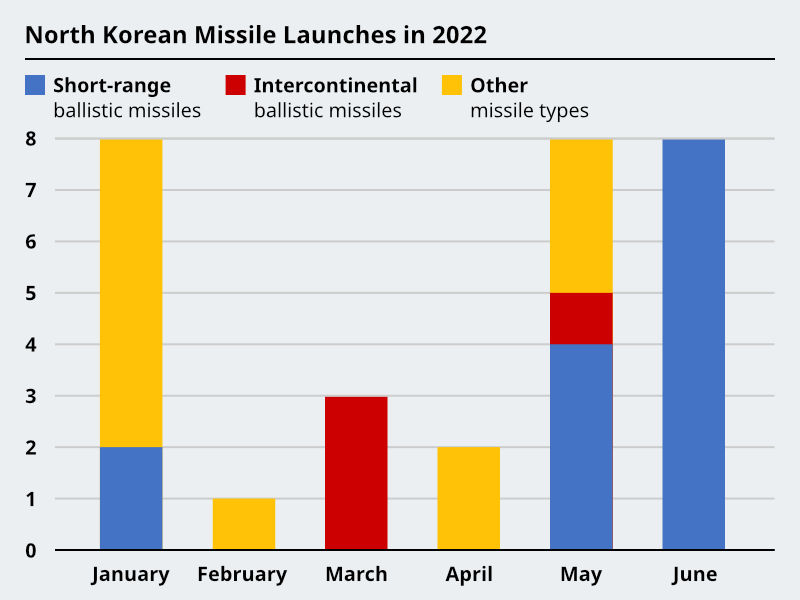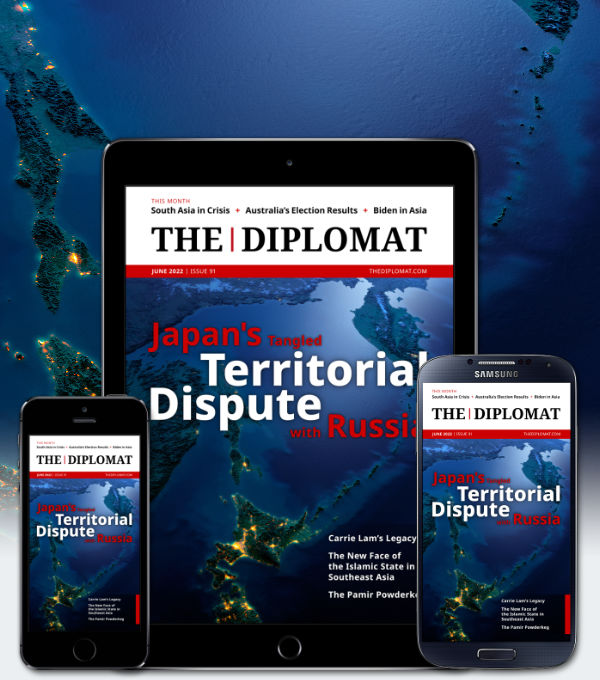| Welcome to the latest issue of Diplomat Brief. This week our top story explores the major shifts taking place in the Pacific Islands region, sparked by China’s security deal with Solomon Islands. We also have an interview with Milos Vystrcil, the president of the Senate of the Czech Republic, on his outreach to Taiwan and the future of China-Czechia relations. |
| Story of the week |  | Diplomacy China’s Pacific Push Is Already Remaking the RegionWhat Happened: In late March, the Solomon Islands government confirmed that it was considering a new security agreement with China, after a draft of the deal was leaked on social media. That kicked off more than two months of frenetic diplomacy in the Pacific Islands, featuring White House officials, the Chinese and Australian foreign ministers, and of course the Pacific Islands leaders themselves. All told, the diplomatic landscape of the Blue Continent looks quite different now than it did in early 2022. Our Focus: The biggest winner from the diplomatic race so far is not Beijing, Canberra, or even Washington – it’s the Pacific Islands themselves. Leaders have been leveraging the high-level attention to demand action on climate change, the region’s top priority. In rejecting China’s bid to have all its Pacific Islands partners sign a “Common Development Vision,” for instead, Pacific Islands Forum Secretary-General Henry Puna “emphasized China’s responsibilities as a Pacific partner nation to up its climate action.” Meanwhile, the external pressure appears to have strengthened the Pacific Islands’ regional grouping internally. Even as the whirlwind of diplomatic visits swirled on, the PIF reached an agreement that will prevent the threatened withdrawal of its five members from the Micronesia subregion. “The great success stories coming out of China’s Pacific push have been elsewhere, with the Pacific Islands Forum (PIF) the most outstanding example,” Patricia O’Brien writes for The Diplomat. “…Following China’s diplomatic pressure, the PIF has been reborn.” What Comes Next: “Given the rush of significant events that have gripped the Pacific in recent weeks, it is almost assured the coming weeks will also be busy,” O’Brien notes. The July elections in Papua New Guinea are the next major event, followed by the first in-person PIF summit since 2019. But over the long term, Pacific Island leaders still aren’t convinced the attention from larger powers will last – or that promises to “listen” to Pacific concerns will lead to real progress. Read this story |
| Behind the News | INTERVIEW Milos VystrcilPresident of the Czech Senate Milos Vystrcil on the possibility of Czechia leaving the China-Central and Eastern Europe (or 16+1) format: “If we were to leave the format, I would strongly be in favor of actually coordinating and discussing this move, because if we do it on an individual basis there is a high risk of the fact that China will retaliate, because it always does. If we were to leave it in a larger group, it would be more significant.” Read the interview |
| This Week in Asia | Northeast Asia China-US Diplomacy Picks UpLast week, U.S. Secretary of Defense Lloyd Austin held his first in-person meeting with Chinese Defense Minister Wei Fenghe on the sidelines of the Shangri-La Dialogue in Singapore. On Monday, U.S. National Security Advisor Jake Sullivan met with China's top diplomat, Yang Jiechi, in Luxembourg. There are no signs of thaw to speak of, but the more frequent meetings indicate both sides' desire to avoid a crisis through clear and frequent communication. Find out more | South Asia Pakistan Talks With the TTPPakistan's new government has been pursuing peace talks with the Pakistani Taliban, or TTP, for weeks, after suffering a spike in attacks following the Afghan Taliban's return to power in 2021. Now the TTP has officially declared an indefinite ceasefire as talks continue. There are worries, however, that Islamabad risks legitimizing the terrorist group through the talks – and concerns about what Pakistan's government might barter away to prevent more bloodshed. Find out more | Southeast Asia Cambodia Hands Down Sentences in Mass TrialOn June 14, a Cambodian court sentenced 31 members of the outlawed Cambodia National Rescue Party (CNRP) to prison terms ranging from five to eight years, in the second mass trial of former party members. Many were sentenced in absentia, having fled the country after the banning of the CNRP in 2017, while a further 20 had their sentences suspended. The verdicts mark the latest ratcheting up of a political crackdown that stretches back to the mid-2010s, and suggest that the limited freedom on display at commune elections earlier this month was merely cosmetic. Find out more | Central Asia Is There Room in ‘New Kazakhstan’ For New Political Parties?The political arena in Tokayev's "New Kazakhstan" remains heavily circumscribed. The troubles of former journalist-turned-politician Zhanbolat Mamai, in jail since February and facing newly announced charges of organizing mass riots back in January, make it clear that Kazakh authorities have little interest in genuine political competition. Find out more |
| Visualizing APAC |  | It’s been a busy year so far for North Korean missile tests, including eight missile launches on June 5 alone. See the full picture |
| Word of the Week | Society ယတြာYedaya (Burmese) are rituals performed to alter one’s fate. These rituals and other folk religious practices have become yet another battlefield in Myanmar’s ongoing civil war. Find out more |
|  |





